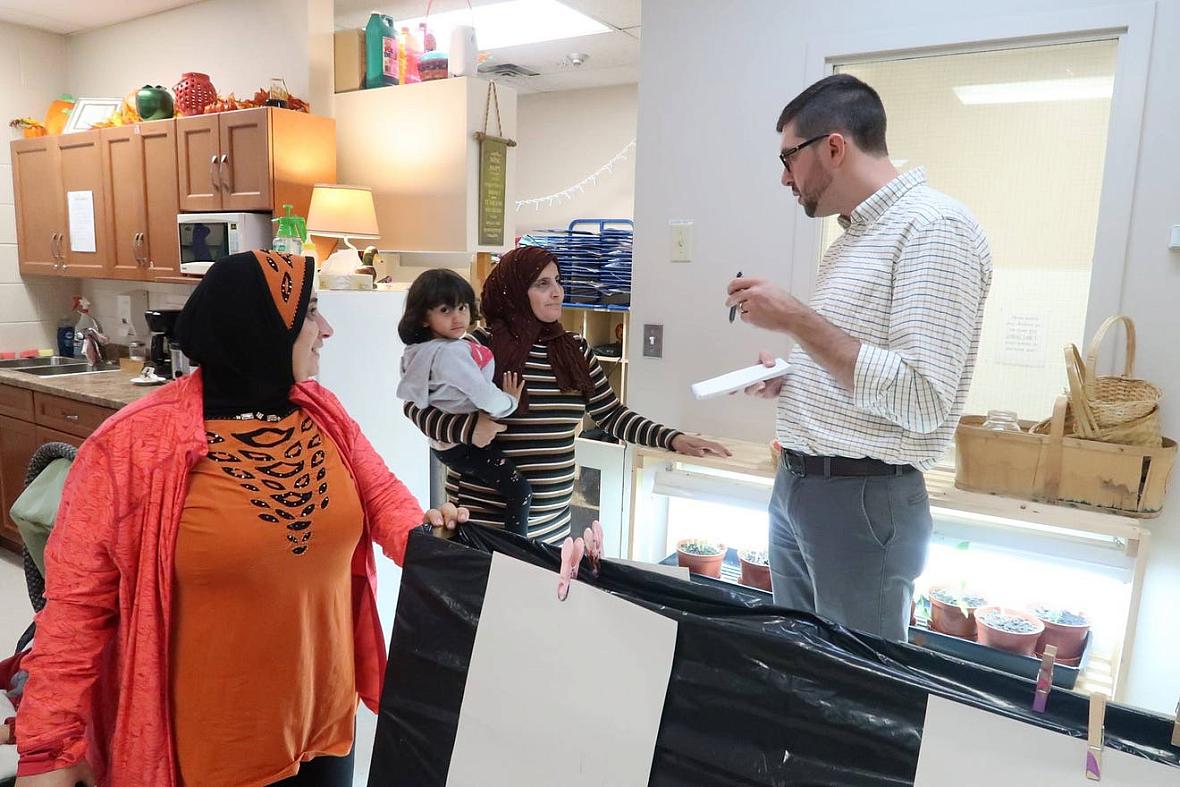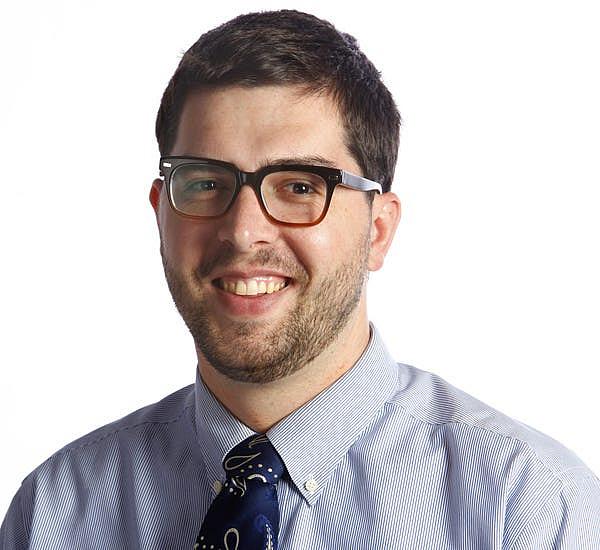How do trees impact community health and well-being? D&C reporter aims to find out
This story is part of a project by Justin Murphy, a 2021 Data Reporting Fellow at the USC Annenberg Center for Health Journalism.
Other stories by Justin Murphy include:
This project mapped every tree in Rochester. Here’s how we did it
How did some Rochester neighborhoods become greener than others?

Reporter Justin Murphy speaking with parents at the EarlyOn child and family center in Windsor, Ontario for the Time To Educate reporting visit
Benny Calderon
By Natalia Rodríguez Medina
The University of Southern California Annenberg Center for Health Journalism has named Democrat and Chronicle reporter Justin Murphy as one of its 2021 Data Reporting Fellows.
As part of the cohort of 21 journalists taking part in the fellowship, Murphy expects to examine the role trees play in the well-being of communities, particularly cities. He will use historical research, municipal archives and other records to study how tree plantings in Rochester impact air quality and health outcomes.
“We often think of trees out in forests, but they are super important in urban settings,” Murphy said.
“I’m grateful that they recognize this as an important topic and also grateful to the D&C for being supportive of this kind of resource intensive work, as they always are,” Murphy said, adding that the media has a responsibility to help create a more equitable community.
Justin Murphy MARIE DE JESUS
The Democrat and Chronicle will publish Murphy's fellowship project. Executive Editor Mike Kilian said Murphy's reporting shines a light on issues that impact Rochesterians.
“Justin Murphy regularly provides insightful reporting on community needs in Rochester, whether it be regarding the challenges facing the Rochester City School District or the sorry history of racial segregation and redlining in Rochester and Monroe County," Kilian said. "He is well-deserving of this fellowship, which will deliver yet more insights for D&C readers regarding how our governments and institutions tend to allocate resources in inequitable fashion."
USC will be pairing Murphy with senior fellow Eric Sagara, Senior Data Journalist at Big Local News at Stanford University, who will provide additional training on tools for using mapping to understand the impact of the urban tree canopy.
Murphy also hopes to show the perspectives of people living in communities with and without trees. He suspects there is a not-so-obvious racial disparity.
This idea came to him as he was working on his book, "Your Children Are Very Greatly in Danger: School Segregation in Rochester, New York," which is scheduled to come out next year from Cornell University Press.
"As I was writing my book, I developed a keener sensitivity to the way that racism manifested in Rochester, in both obvious and non-obvious ways, and tree planting is a non-obvious way," Murphy said.
He hopes that the result of his research will lead to community action, as he believes that teaching people about the benefits of trees in health and life, while also addressing concerns about yard work or care, will lead to better outcomes for people.
“It’s not just about dropping seeds and walking away,” Murphy said.
As part of his fellowship, Murphy will collaborate with other experienced journalists and editors and funding of up to $2,000 will help with costs associated with his reporting, including a robust community engagement plan. The first stories will be published by the end of March 2022.
While Murphy will spend most of his time working on this project until then, he also expects to continue covering education and social inequities in the city.
Natalia Rodríguez Medina is a bilingual reporter covering the Puerto Rican and Latino population for the Democrat and Chronicle in partnership with Report for America. Follow her on Twitter at @nataliarodmed or email her at nrodriguezmedina@gannett.com. You can support her work with a tax-deductible donation to Report for America.
[This story was originally published by Democrat & Chronicle.]

